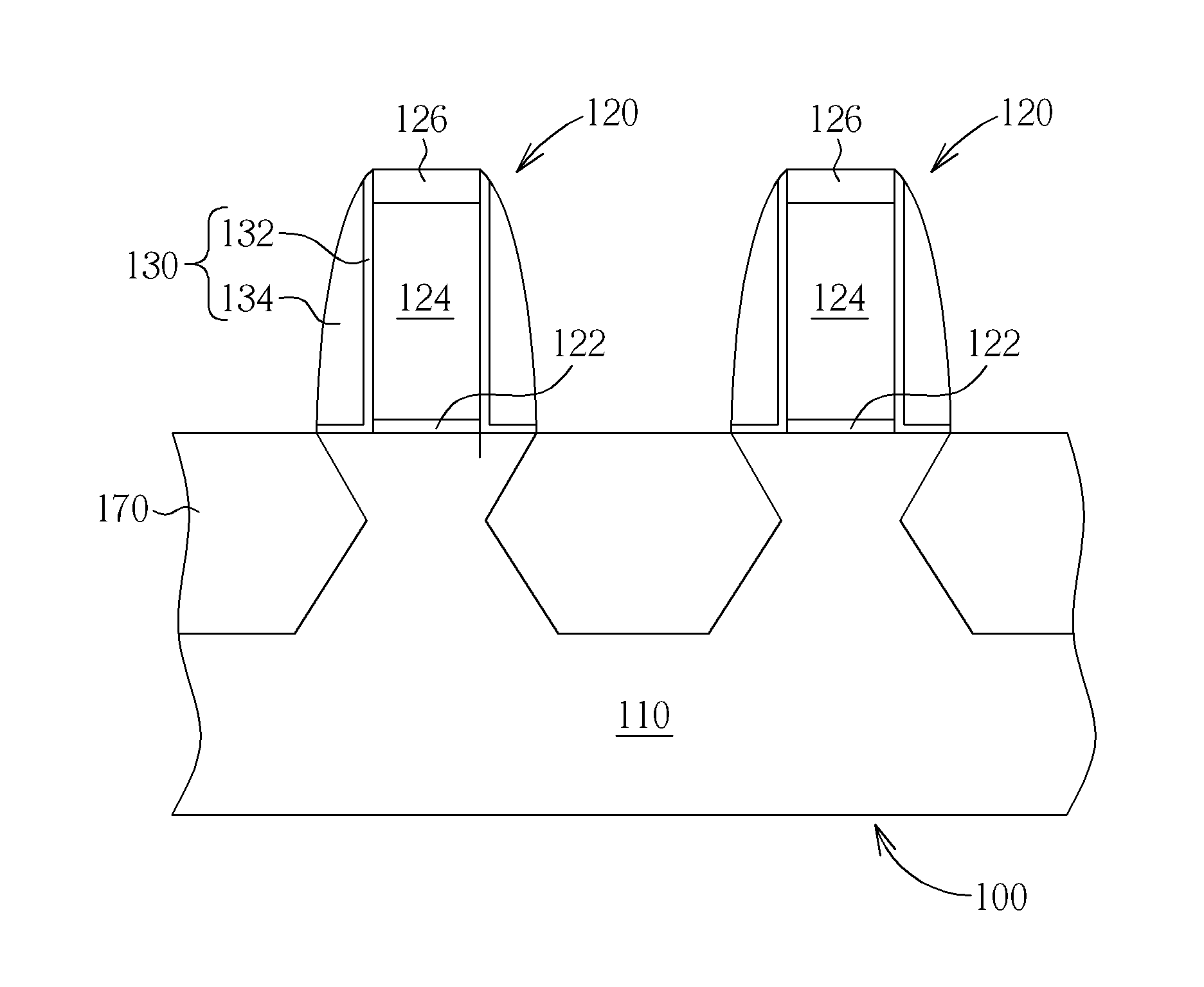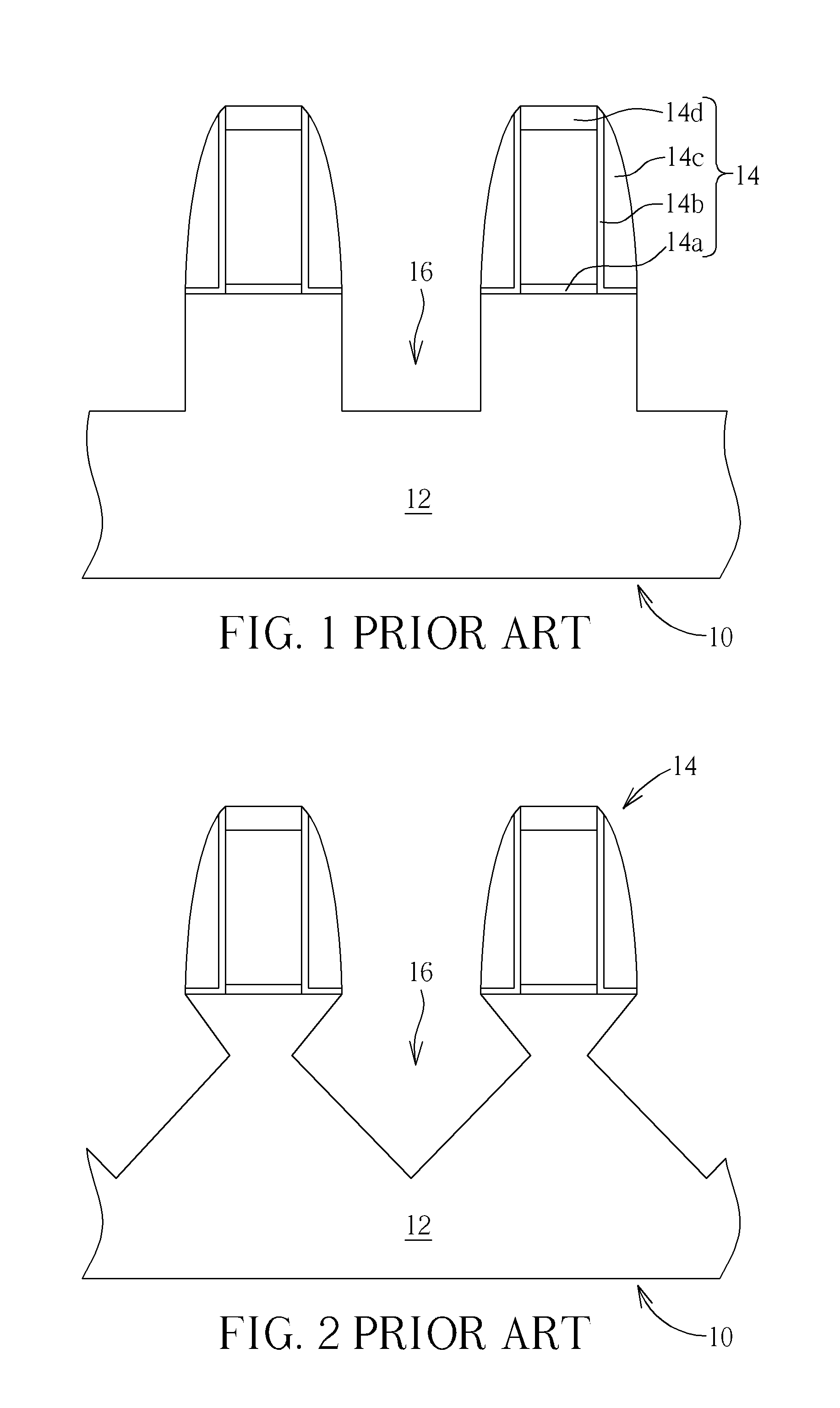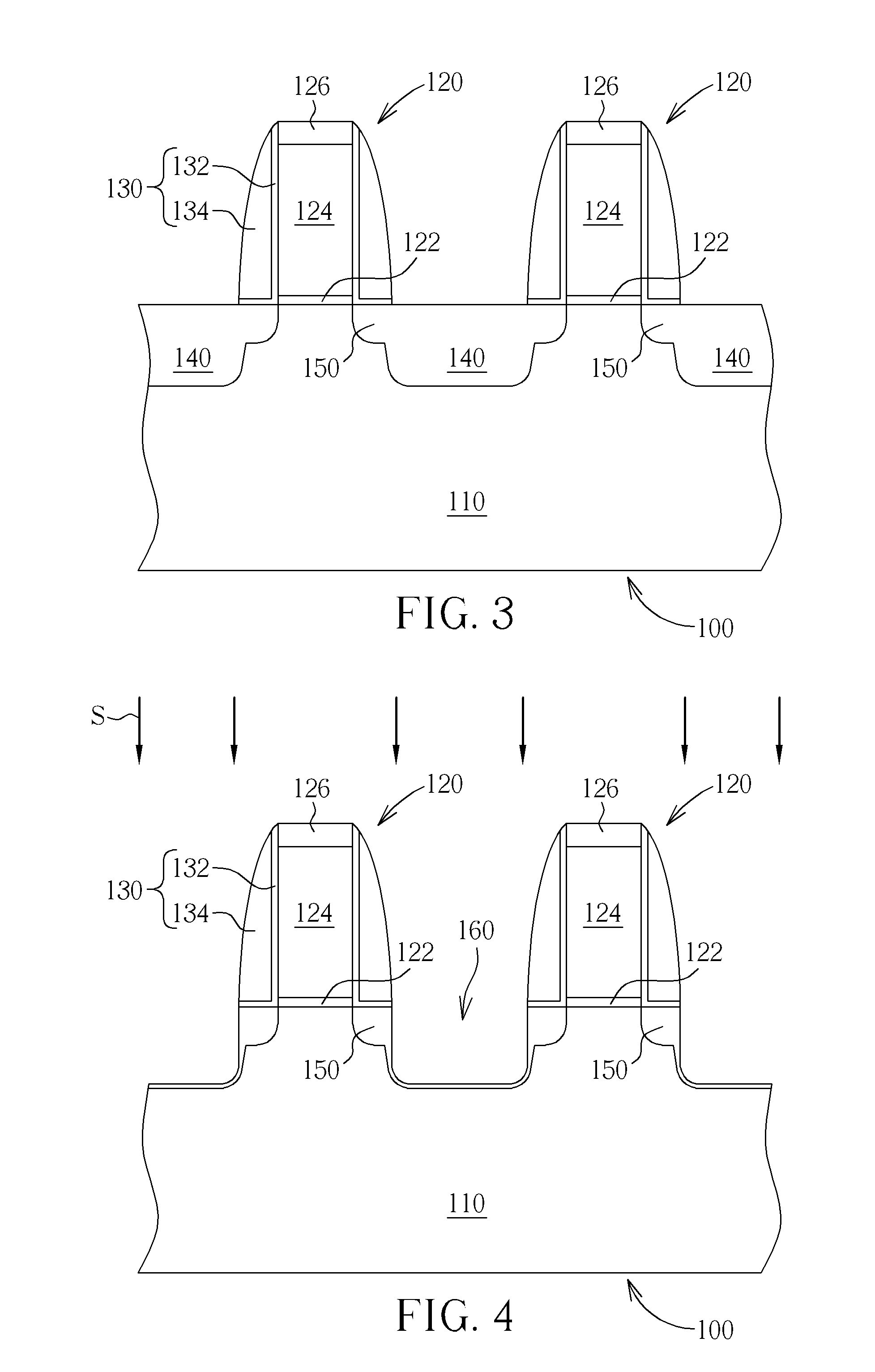Semiconductor process
a technology of semiconductor devices and process steps, applied in the direction of semiconductor devices, basic electric elements, electrical equipment, etc., can solve the problems of circuit leakage, low electrical quality of semiconductor devices, and the inability to increase the driving current of mos transistors, etc., and achieve the effect of good electrical quality
- Summary
- Abstract
- Description
- Claims
- Application Information
AI Technical Summary
Benefits of technology
Problems solved by technology
Method used
Image
Examples
Embodiment Construction
[0016]FIGS. 3-6 are schematic, cross-sectional diagrams illustrating a semiconductor process applying epitaxial technology in accordance with a preferred embodiment of the present invention. As shown in FIG. 3, a substrate 110 is provided, in which the substrate 110 can be a doped or undoped single crystal silicon. A doped well and an insulating layer are formed sequentially on the substrate 110 to provide an insulation between adjacent devices or transistors (not shown). The insulating layer can be a trench insulation structure, and the fabrication thereof can be obtained by etching a recess and then depositing an oxide layer within the recess. The details which are not explained herein for the sake of brevity. In one example, the trench insulation structure can be a shallow trench isolation structure (STI), but not limited thereto.
[0017]A gate structure 120 is formed on the substrate 110. The gate structure 120 includes a gate dielectric layer 122 and a gate electrode 124. The fab...
PUM
 Login to View More
Login to View More Abstract
Description
Claims
Application Information
 Login to View More
Login to View More - R&D
- Intellectual Property
- Life Sciences
- Materials
- Tech Scout
- Unparalleled Data Quality
- Higher Quality Content
- 60% Fewer Hallucinations
Browse by: Latest US Patents, China's latest patents, Technical Efficacy Thesaurus, Application Domain, Technology Topic, Popular Technical Reports.
© 2025 PatSnap. All rights reserved.Legal|Privacy policy|Modern Slavery Act Transparency Statement|Sitemap|About US| Contact US: help@patsnap.com



